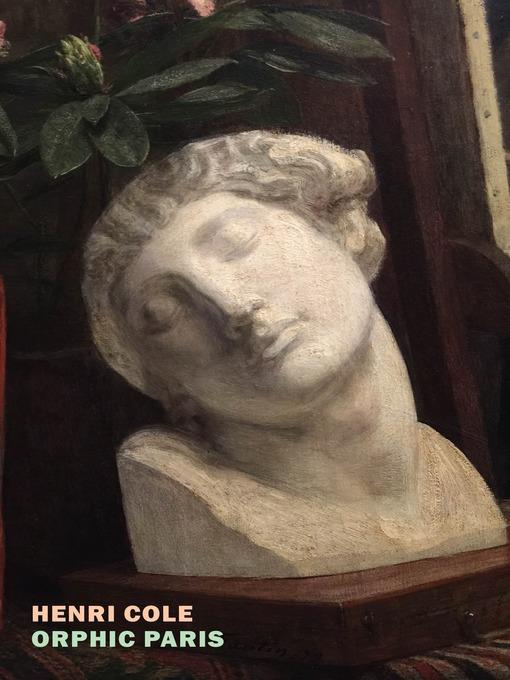
Orphic Paris
کتاب های مرتبط
- اطلاعات
- نقد و بررسی
- دیدگاه کاربران
نقد و بررسی

January 29, 2018
This impressionistic paean to Paris from poet Cole (Nothing to Declare) bypasses conventional memoir or travelogue to give readers a captivating collection of his memories. Born to an American father and a French mother, Cole discusses family recollections of occupied France, his first trip to Paris as a small child, and a long-ago Christmas dinner in Marseille with his uncle’s family, along with more recent travels in Paris. He shares conversations with friends, notably the late biographer James Lord, and observations on artists and poets, such as Paul Cezanne and Rainer Maria Rilke, but his love of Paris remains the main note. Smitten with the city, Cole is as comfortable taking the reader to off-the-beaten-path spots like a taxidermist’s shop, “where one can buy a butterfly, beetle, baby lamb, or black bear,” as to landmarks like the Pompidou Center or Montparnasse Cemetery. In one of the most memorable passages, he celebrates France’s legalization of same-sex marriage by drinking champagne, while “on the horizon, the top of the Eiffel Tower kept me company with its sparkling lights that suggest freedom.” Paris lovers and Cole fans will rejoice, but so will any reader who delights in fine writing.

February 15, 2018
Self-portrait of a prizewinning poet in search of himself in entrancing Paris."In part, I come to Paris because I am a dreamer. It is a place where I am able to escape the shadows," writes Cole (Literature/Claremont McKenna Coll.; Nothing to Declare: Poems, 2015, etc.) in this delicate, affectionate, and reflective memoir. Originally serialized in the New Yorker, the book's 17 parts are mini-essays exploring the Paris landscape, family, friends, films, being gay, and the art of poetry. One of the many questions the author poses throughout the book is, "why am I writing all this down, dear reader?" He answers, "I don't want to conceal anything, or be surreptitious. Instead, I want to reveal something...that might otherwise remain dormant behind the intense beauty of Paris." Cole visited a number of graves, including Baudelaire's and his very good friend James Lord's. While visiting Susan Sontag's in Montparnasse, Cole describes himself as a "literary tourist....Cemeteries, after all, are for the living." Stylistically, the book has a strong aphoristic feel to it. The text, a "landscape self-portrait," is quietly understated in its reflections. Not surprisingly, at the heart of the book is poetry, Cole's own and that of others, including Rainer Maria Rilke, Elizabeth Bishop, and Wallace Stevens. I want my poems to seem rebellious...definite, self-sufficient," he writes, "and true in what they represent, like expressionist paintings." When "so much American poetry feels emotionally tepid and almost suburban," Cole revels in the "organized violence" of Sylvia Plath's poetry, which "extended the boundaries of the lyric." For Cole, Paris is the "city of the beloved. Some say a man goes mad if he is without love." The book's ending, with its series of sentences all beginning with "J'aime," is exuberant, Whitmanesque, Orphic: "and in this place, I wrote, I was nourished, and I grew."A wise, astute, and luminous literary commonplace book.
COPYRIGHT(2018) Kirkus Reviews, ALL RIGHTS RESERVED.

























دیدگاه کاربران